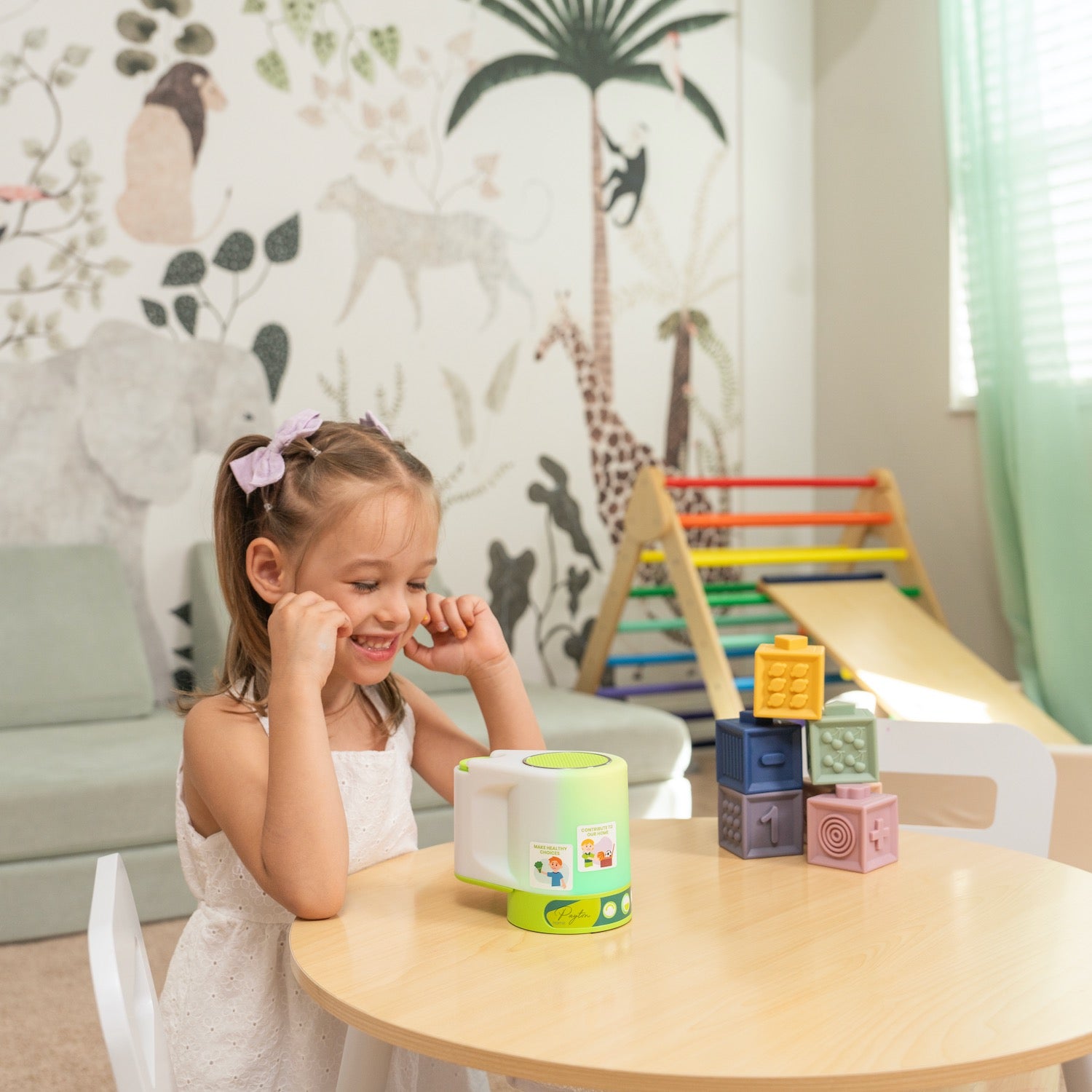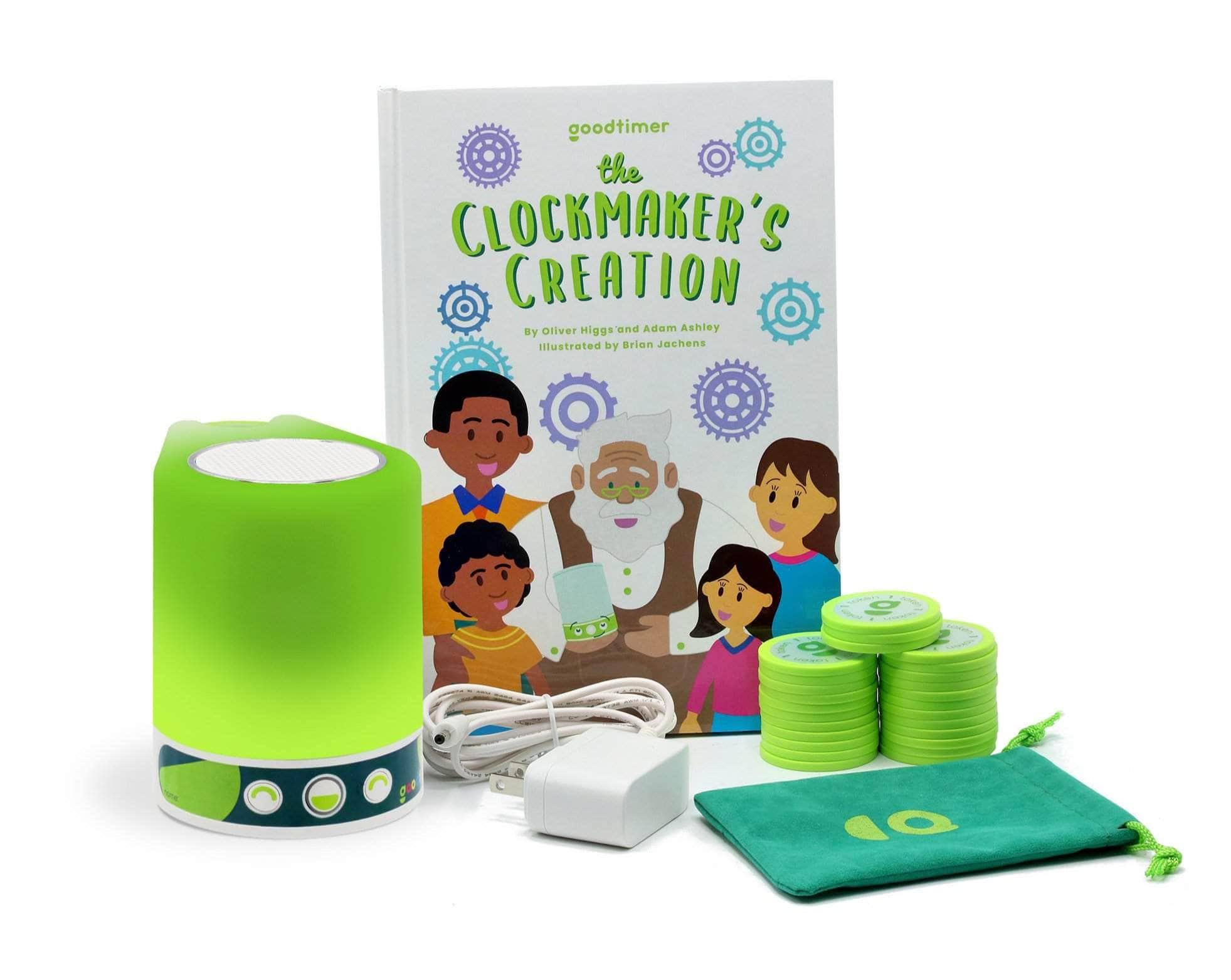Navigating Backtalk and Promoting Positive Parenting with Goodtimer
When you ask your child to feed the cat, or to get ready for bed, or to eat their broccoli, is their typical response to drop whatever they are doing, smile lovingly, and accommodate your request? No?! Join the club.
If your child sometimes responds to you with an edge (or more) of sass, although it may feel like they are being disrespectful in that moment, the truth is this: their sass is, in some ways, developmentally appropriate. It means they feel safe enough to start asserting their independence which is incredibly important for their developing self esteem. Unfortunately for us, though, this knowledge doesn't change the fact that being sassed by our kids (and having them refuse our behavioral requests) can be extremely frustrating.
So...how to balance a parent's understandable need for cooperation with a child's healthy need to assert themselves? Let’s start by understanding more about why our kids feel the need to revolt, and then look at some effective strategies (supported by your Goodtimer!) to manage this tricky phase of child development.
The many reasons why your kid may be talking back
It is a safe generalization to say that, for the most part, kids want to behave. They also do not want to get in trouble, and they also want their parents to be pleased with them. At times, though, every kid finds it challenging to behave in the ways their parent is asking them to. In these moments, try to figure out what might be preventing them from cooperating. Do they understand the rules? Are they vying for independence? Are they tired or hungry? Perhaps they want to see what happens when they push your boundaries? Or perhaps your child has not yet mastered the art of understanding/expressing their feelings (many adults are still working on this!), and so it is actually more comfortable for them to "talk back" then it is for them to say "I don't like the taste of broccoli mommy and I feel frustrated that you still ask me to eat it." Another possibility is that your child is craving attention - even if it's negative in nature.
You'll notice that none of these possibilities read, "perhaps they completely disrespect you and want to make your life as difficult as possible?" Try to remember this if you find you are taking these moments personally. If you can get to the "why" and address the root of their misbehavior, you may be successful at turning it behavior around and getting ahead of future instances of backtalk.
How do I handle backtalk?
Now that you are in the mindset of trying to understand your child’s unique perspective and, hopefully, can find empathy for them, you’ll want to communicate this empathy while clearly reinforcing rules/boundaries and, ideally, providing physical comfort to engage their minds and bodies.
Ask your child to flip their Goodtimer and clearly state the specific behavior that led to the reset. During this discussion, encourage them to express their feelings and frustrations in a respectful manner. Tell them how we need to listen when someone is speaking, and wait for their turn to talk. When we don’t listen and wait our turn, we aren’t able to understand each other.
Explain to your child what backtalk and arguing looks like by providing examples of negative tone and common phrases you’ve heard come out of their mouths. Help them understand why it's not acceptable, and then shift the focus of the conversation to examples of respectful communication. Encourage your child to come up with a respectful alternative to talking back. This allows them to feel control over their own selves while also working within the boundaries of the house. Remind them of the Goodtimer token incentive that you came up with together. That goal of having a sleepover or staying up 30 minutes past bedtime can set them right back on track.
Be on the lookout for "good" behavior to reinforce
Whenever we call out our children for their "bad" behavior, we do so because it feels right in the moment - and most times, it is! We need to be clear about our expectations and teach them how to adhere to them. That said, after you've articulated what they should NOT be doing, it can be incredibly valuable to "catch them" doing something "good;" the act of praising good behavior is an unparalleled tactic in reducing future backtalk. Pay attention to how they interact with you and others, and let yourself feel joy when they're being kind/polite/respectful - then, share the joy with them! Not only will this feeling balance out your own frustrations, but it will present as authentic to your child. When you positively reinforce good behavior, you’re telling your child that you see them in their best moments, too, and this gives them the confidence they need to make different choices in the difficult moments that are sure to come.
Another way to address back talk is by being a respectful role model. Your children copy what they see, soaking in behaviors, tones, and vocabulary like little sponges. When you model respectful behavior, they get a front-row seat to a powerful lesson in how they should react in less-than-ideal situations. Sometimes, it’s difficult to keep our cool - we're only human. When this happens, you can still be a role model by apologizing to those around you and explaining what unique circumstances you were dealing with in that moment which shortened your fuse.
In conclusion: try to remember that backtalk is a normal part of a child's development. Understanding the reasons behind backtalk and using Goodtimer’s support can help you navigate this challenging phase. By learning about and addressing unmet needs, fostering better communication, and setting clear boundaries, you can teach your child both to express themselves respectfully and to assert their independence in constructive and respectful ways.










Leave a comment